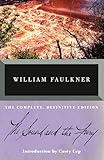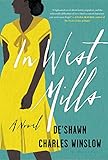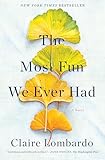During our school years in Shanghai, we were always reading two books at the same time. One was our textbook, which sat open on the desk, protected by extra covers, lines highlighted and margins filled with tidy handwriting, reflecting our diligence; the other was the book we were actually reading, hidden inside our desks, probably dog-eared and without notes. As our teacher droned on and on, our souls slipped into the worlds of those books: some of us fought to be Kung Fu masters, others fell in love with someone magnificent.
Now, years later, I often hear people say that the books we loved in youth are not good, and that we liked them only because we desperately wanted to escape from the chore of schoolwork. This year, I spent a lot of time rereading the same books I used to sneak into my desk back in old days. And I mean to say this: We don’t need to feel apologetic about loving these books. Most of them still speak to us.
1. Walden, “Civil Disobedience,” and Other Writings by Henry David Thoreau
 For most of this year, I was translating English Professor Laura Dassow Walls’s most recent biography, Henry David Thoreau: A Life, into Chinese. I took the opportunity to reread Thoreau’s major works. Now, it’s safe for me to say that I still admire Thoreau. Not because I, as a city person, fancy the romantic idea of living in the woods, but because I appreciate his moral struggle and his life-long journey to elevate himself.
For most of this year, I was translating English Professor Laura Dassow Walls’s most recent biography, Henry David Thoreau: A Life, into Chinese. I took the opportunity to reread Thoreau’s major works. Now, it’s safe for me to say that I still admire Thoreau. Not because I, as a city person, fancy the romantic idea of living in the woods, but because I appreciate his moral struggle and his life-long journey to elevate himself.
There have always been two Thoreaus: one was the hermit by the lakeside, a moralist who maintained his self-purity by disengaging with the infected human society; the other was a politically responsible citizen who would rather go to jail than support the unjust American government by paying poll-tax and who tirelessly called on his people to do the same, to commit civil disobedience.
 Walls’s biography inspires me to see the two contradicting images as one. Thoreau saw the interconnectedness of all reality—“A man is a bundle of relations” (Ralph Waldo Emerson)—firstly in nature, where the newly-built hydraulic machinery threatened the lives of innocent fish. He defended the fish in his first book, A Week on the Concord and Merrimack Rivers. Later, he extended his defense to include all oppressed forms of life: slaves controlled by their owners, Native Americans expelled by Anglo Immigrants, Mexicans threatened by the war of conquest…He was not merely interested in self-cleansing, either; he aimed to be the “chanticleer” (Walden) who would wake his neighbors with the dawn and remind them to live up to Higher Laws.
Walls’s biography inspires me to see the two contradicting images as one. Thoreau saw the interconnectedness of all reality—“A man is a bundle of relations” (Ralph Waldo Emerson)—firstly in nature, where the newly-built hydraulic machinery threatened the lives of innocent fish. He defended the fish in his first book, A Week on the Concord and Merrimack Rivers. Later, he extended his defense to include all oppressed forms of life: slaves controlled by their owners, Native Americans expelled by Anglo Immigrants, Mexicans threatened by the war of conquest…He was not merely interested in self-cleansing, either; he aimed to be the “chanticleer” (Walden) who would wake his neighbors with the dawn and remind them to live up to Higher Laws.
In a time when we are so easily lost in the trappings of material success, perhaps we can always turn to Thoreau for insight and courage. As Walls beautifully puts it:
When [Thoreau] wrote that “a man is rich in proportion to the number of things which he can afford to let alone,” he meant not an ascetic’s renunciation, but a redefinition of true wealth as inner rather than outer, aspiring to turn life itself, even the simplest acts of life, into a form of art. “There is Thoreau,” said one of his closest friends. “Give him sunshine, and a handful of nuts, and he has enough.” (Henry David Thoreau: A Life)
2. After the Quake by Haruki Murakami


 One often has to defend their love for Haruki Murakami in the same way one must defend their love for J.D. Salinger’s The Catcher in the Rye. It is true that there are certain books that you will never truly understand—and, even if you do understand, you will never experience that same electrifying feeling—unless you have read them at a certain age. This speaks to my experience with Norwegian Wood, which we carefully kept away from parents and teachers during adolescence and which offered us an exciting glimpse into what then seemed to us the mysteries of adulthood.
One often has to defend their love for Haruki Murakami in the same way one must defend their love for J.D. Salinger’s The Catcher in the Rye. It is true that there are certain books that you will never truly understand—and, even if you do understand, you will never experience that same electrifying feeling—unless you have read them at a certain age. This speaks to my experience with Norwegian Wood, which we carefully kept away from parents and teachers during adolescence and which offered us an exciting glimpse into what then seemed to us the mysteries of adulthood.
Earlier this year, I reread After the Quake, a collection of stories Murakami wrote after Japan’s 1995 Kobe earthquake. This time, I must confess that I enjoyed the book even more. I remember I used to adore “Thailand” and “All God’s Children Can Dance,” but now my favorite piece is “Super-Frog Saves Tokyo.” In this story, an average Japanese salaryman is chosen by Super-Frog to save the metropolis. When this ordinary man doubts himself for lacking any traditional heroic qualities, Super-Frog convinces him otherwise: “Tokyo can only be saved by a person like you. And it’s for people like you that I am trying to save Tokyo.” Amanda Lewis, in her essay about Murakami and his un-Japanese style, suggests that Murakami’s exploration of “the needs of the individual” is his refusal of “the essence of the Japanese mind,” which often contains an undertone of “a disregard for the sacredness of human life.” (Amanda Lewis, “The Essence of the Japanese Mind: Haruki Murakami and the Nobel Prize.”)
I am not saying I like all of Murakami’s works—some of them are disappointing—but the books that enthralled me when I was young—Norwegian Woods, After the Quake, South of the Border, West of the Sun—have quite a lasting charm.
3. The Sound and The Fury by William Faulkner






 My American friends often find it unbelievable that I read Sound and Fury when I was a teenager. Back then, I read its Chinese translation; Li Wenjun, the translator, carefully inserted footnotes to offer the much-needed context when time-shifting occurs. So I didn’t find it too difficult. This year, to write a script for a Chinese radio show, I reread the book in English. Because I already had the plot in my mind, I was able to appreciate the beauty of Faulkner’s writing.
My American friends often find it unbelievable that I read Sound and Fury when I was a teenager. Back then, I read its Chinese translation; Li Wenjun, the translator, carefully inserted footnotes to offer the much-needed context when time-shifting occurs. So I didn’t find it too difficult. This year, to write a script for a Chinese radio show, I reread the book in English. Because I already had the plot in my mind, I was able to appreciate the beauty of Faulkner’s writing.
Quentin’s section stunned me, as it had years ago. What seems like nonsense—long, chaotic sentences without quotation marks is also pure poetry. Of course, the young Faulkner—he was only 31 when he wrote this masterpiece—was probably also showing off his mastery of different prose styles. His genius may overawe all the aspiring young writers of today. But it is fine to feel intimidated; that is how we push ourselves to write better.
P.S.: As a woman of color myself, I am aware of the race and gender issues in “the Western canon.” So, I would also like to recommend the best history book I have read this year: A More Beautiful and Terrible History: The Uses and Misuses of Civil Rights Movement by Jeanne Theoharis. Theoharis argues that politicians have twisted the narrative of the civil rights movement. Now, we feel as if American democracy is a self-correcting and self-renewing system. However, the struggle of African Americans is proof of the system’s problems, not of its perfection. By glossing over the complexity of history, the current narrative turns us away from the still-dire racial present. The most deep-rooted racism, Theoharis suggests, doesn’t take the form of violence; it lies in the way parents assert their rights as taxpayers to maintain a dominantly white “neighborhood school.” Racism happens not only in the Deep South but also in New York City, in Los Angeles, in all those big cities which purport to embrace diversity.
Besides, while we appreciate the problems and values of the literature of the past, we can also keep an eye out for the potential classics of the future. I enjoyed reading The Study of Animal Language by Lindsay Stern and 99 Nights in Logar by Jamil Jan Kochai. And I am also looking forward to reading the following books, all of which boast excellent reviews: In West Mills by De’Shawn Charles Winslow, The Travelers by Regina Porter, and The Most Fun We Ever Had by Claire Lombardo. Yes, these authors are all my workshop buddies at Iowa, but I will feel honored to have been one of their first readers.
More from A Year in Reading 2019
Don’t miss: A Year in Reading 2018, 2017, 2016, 2015, 2014, 2013, 2012, 2011, 2010, 2009, 2008, 2007, 2006, 2005









